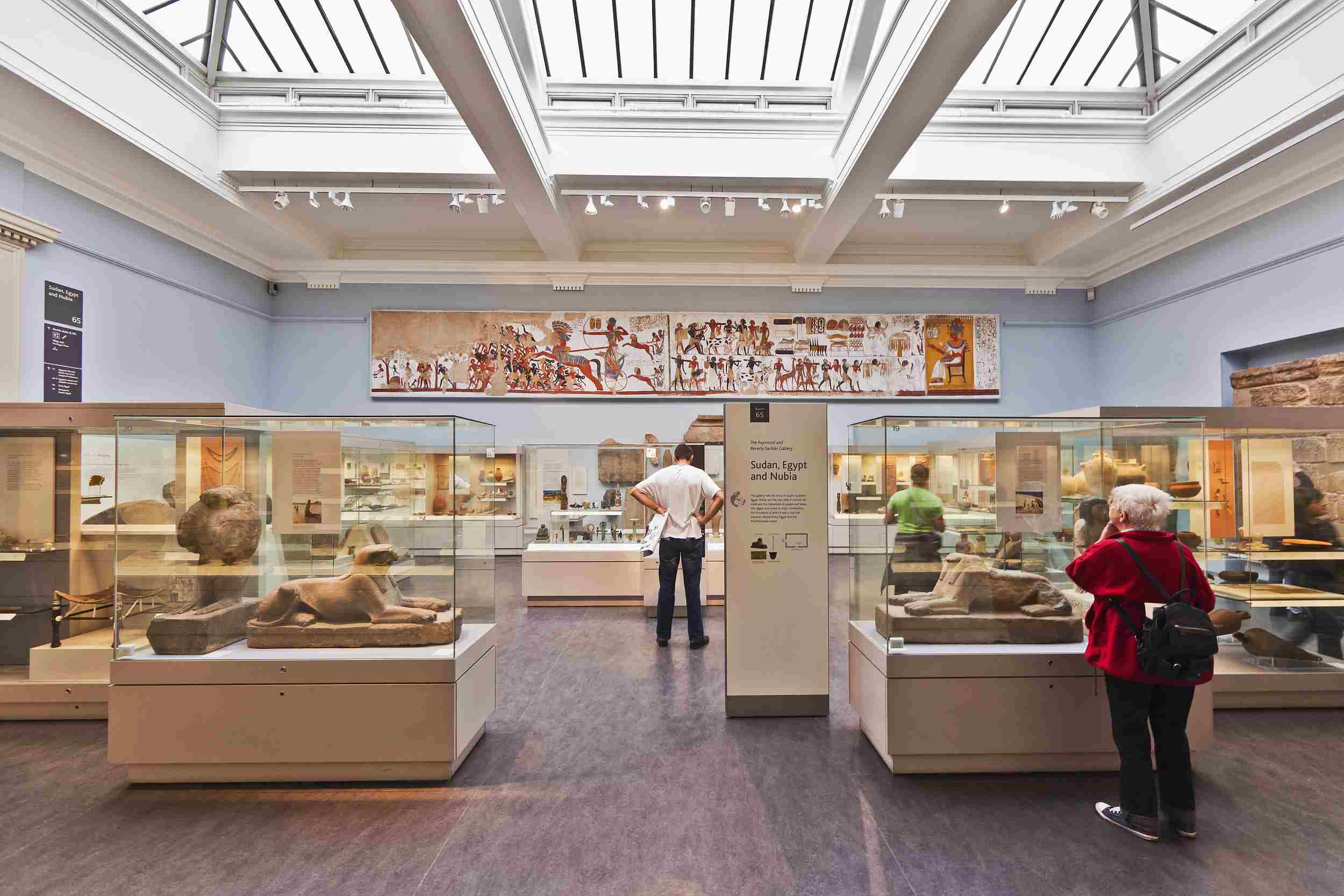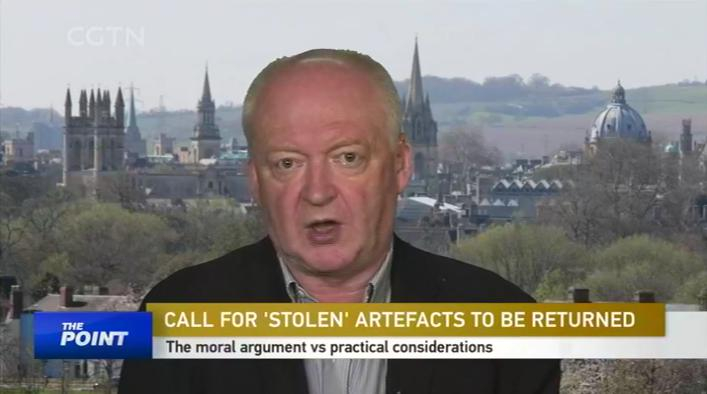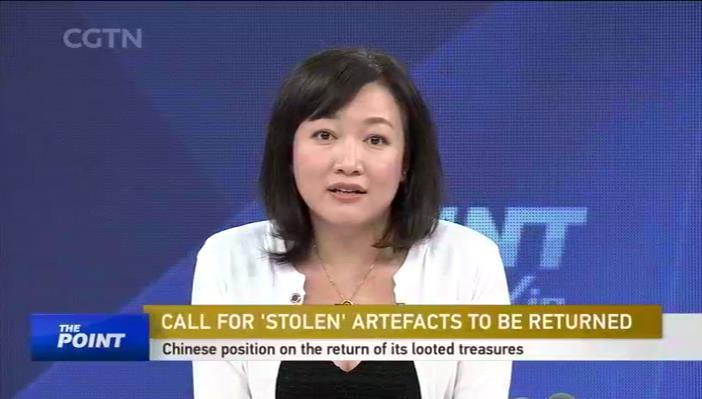
18:03, 28-Feb-2019
Call for ‘stolen’ artifacts to be returned to their countries of origin

"I think it is becoming an increasingly embarrassing truth that the British Empire was a project of pillage and looting. I don’t think any serious historian any longer would try to deny this," said David Anderson, a professor of African history at Warwick University.
Anderson's comment came after a historian who presents a popular TV show in the UK suggested that Britain should return foreign treasures looted in past centuries if it wants to make international friends in the future.
This again raised the long-debated question: Should looted artifacts return to their countries of origin? And are institutions in foreign countries fit to take care of them?

David Anderson, a professor of African history at Warwick University./ CGTN Photo
David Anderson, a professor of African history at Warwick University./ CGTN Photo
Anderson thought the concern about the conditions of the museums is of "secondary importance."
The primary question is "to whom do these things belong?" He admitted that in some African countries, the museum systems are not in a position to receive, store and look after the valuable treasures. In that case, people should address such impediments directly, for example by providing some assistance.
He emphasized that "artifacts should be returned back to their countries of origin."

Han Hua, fellow of the Chongyang Institute for Financial Studies at Renmin University of China /CGTN Photo
Han Hua, fellow of the Chongyang Institute for Financial Studies at Renmin University of China /CGTN Photo
Han Hua, a fellow of the Chongyang Institute for Financial Studies at Renmin University of China, echoed Anderson's view that the value of the artifacts not only depends on "how many years they endured, but also because of their presence and the history that goes along with the people and the country."
Han also elaborated on the Chinese position regarding the return of the looted artifacts. She said based on the two international conventions, namely UNESCO 1970 and UNIDROIT 1995, China has worked with different governments to seek the return of its artifacts.
SITEMAP
Copyright © 2018 CGTN. Beijing ICP prepared NO.16065310-3
Copyright © 2018 CGTN. Beijing ICP prepared NO.16065310-3